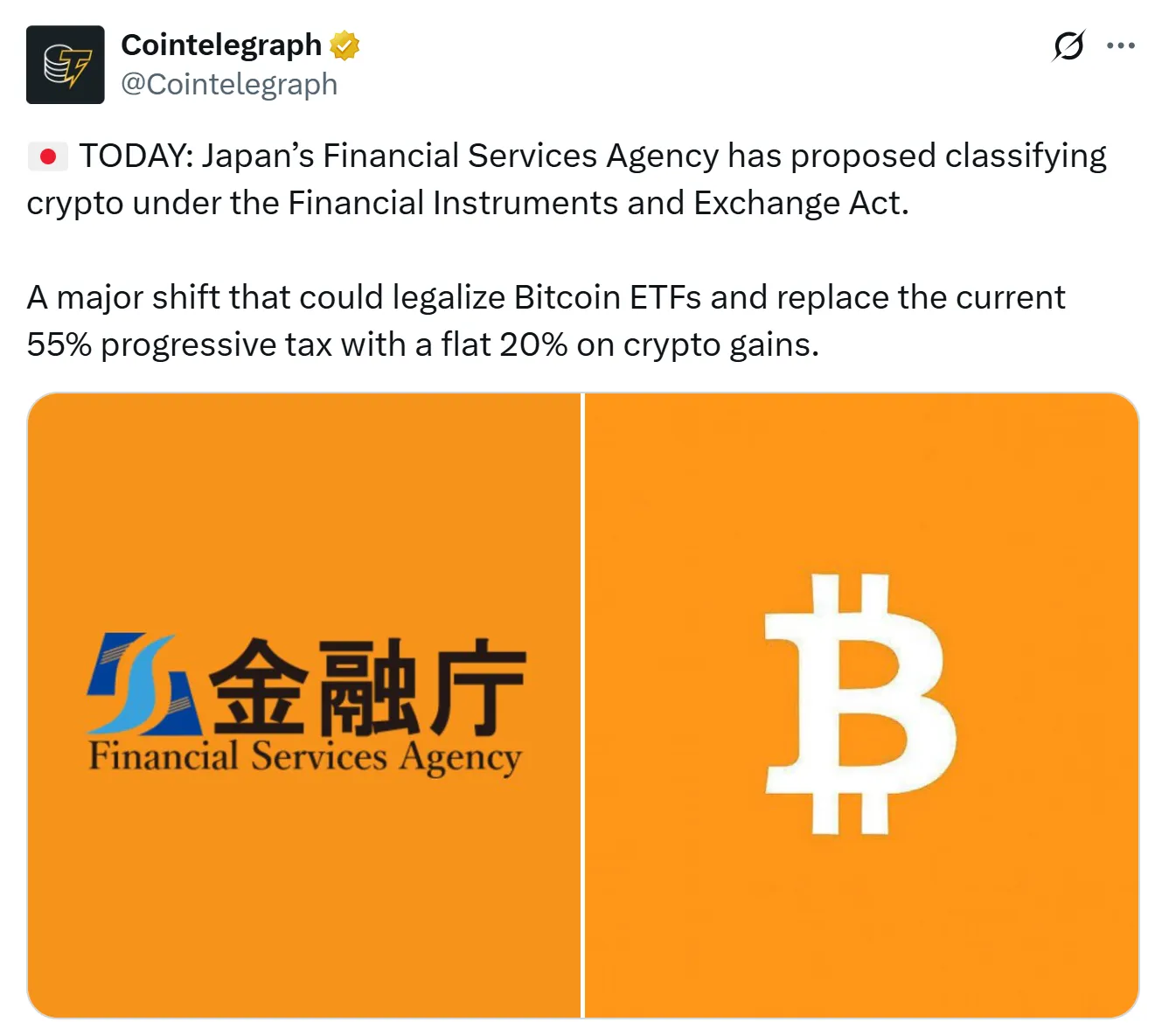🛑 Why Crypto Builders Are Leaving Japan (And What Needs to Change)
-

Japan might be one of the most technologically advanced nations, but in crypto? It’s falling behind. According to WeFi CEO Maksym Sakharov, it’s not taxes holding back innovation — it’s the “slow, risk-averse, and overly prescriptive approval culture.”
 Here’s what’s really happening:
Here’s what’s really happening:Listing a token or launching an IEO in Japan takes 6–12 months, minimum. Every project must clear two hurdles: JVCEA review + FSA approval. Builders spend months just tweaking paperwork — only to risk being told “no” after burning runway.🧠 “Culture eats tax cuts for breakfast.” Even with a proposed 20% flat tax (down from 55%), startups are still listing overseas first.
 Meanwhile, countries like Singapore, UAE, and South Korea are:
Meanwhile, countries like Singapore, UAE, and South Korea are:Faster Offering clearer, more dynamic regulatory paths Attracting global capital and top-tier builders Sakharov’s solution:
Sakharov’s solution:Implement time-boxed, risk-based approvals Build a real sandbox for Web3 Ditch rigid pre-approvals in favor of proportional, ongoing compliance Without reform, Japan’s crypto ecosystem risks becoming a ghost town — with all the real action (and money) flowing offshore.
Without reform, Japan’s crypto ecosystem risks becoming a ghost town — with all the real action (and money) flowing offshore.Are you a builder or investor dealing with these delays? What’s the fastest crypto-friendly country you’ve worked with?
-
Even Japan's upcoming 20% flat tax on crypto gains won’t reverse the exodus unless regulatory culture shifts.High tax frustration remains—but Web3 leaders say it’s the approval bottleneck that’s central. The lack of a live sandbox for staking, DAO governance, or token products leaves startups nowhere to innovate.Until Japan adopts smoother disclosure rules and clearer timelines, it’s unlikely to win back projects or retain capital.
-
Japan’s brain drain in crypto isn’t about taxes—it’s about painfully slow approvals.Web3 startups are exiting not because of the 55% tax, but because the pre‑approval model (JVCEA + FSA) can take 6–12 months or even up to four years just to list a token. That kills runway and forces early movers to pivot overseas.Regulators structured the process to avoid risk—not accelerate innovation. Countries like Singapore and the UAE offer time‑boxed, risk‑based approvals and functional sandboxes that Japan urgently needs.

















